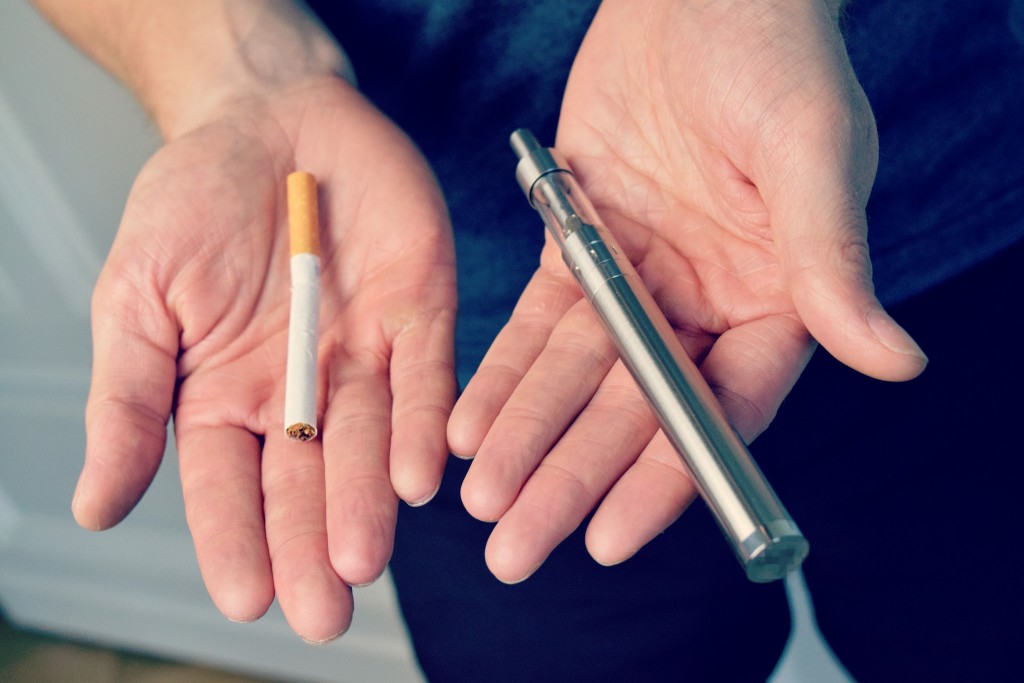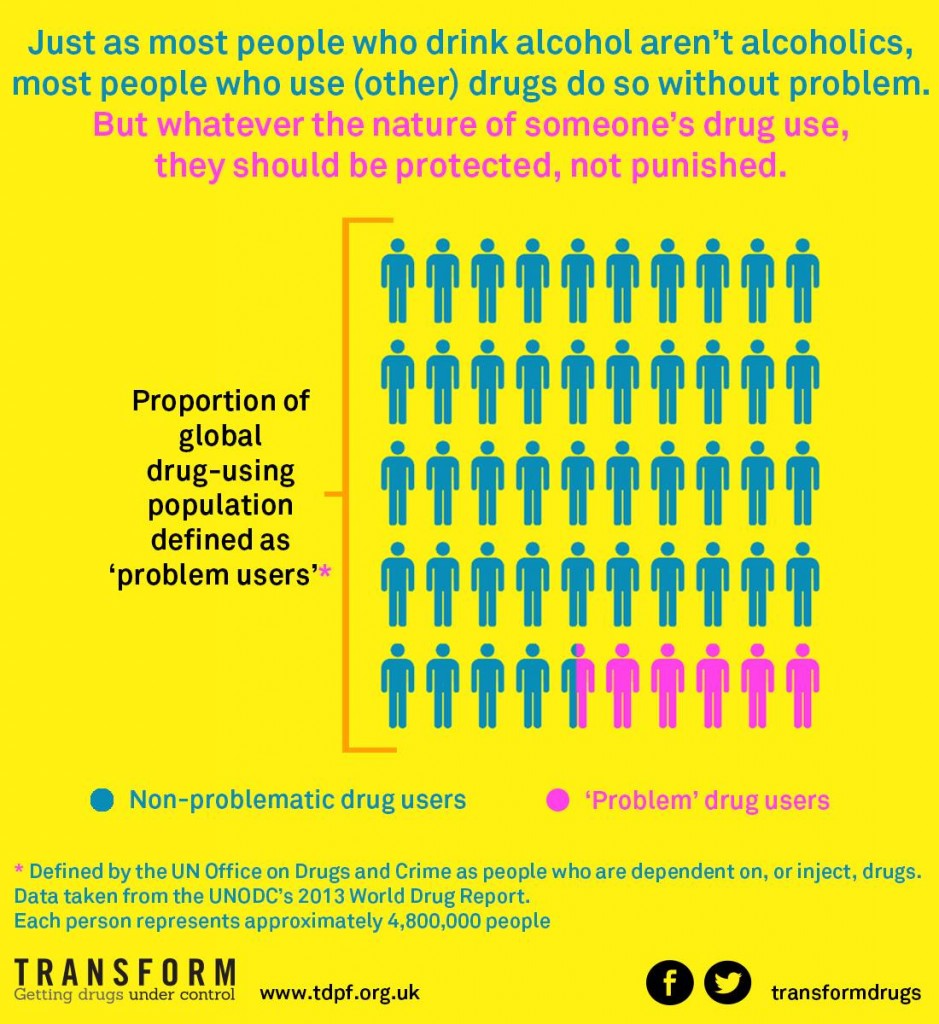We began this week with two articles on the recent Lib Dem-commissioned expert panel report on cannabis regulation. First, we interviewed Professor Harry Sumnall to find out how regulation would affect public health. Second, we published Christopher Snowdon’s critique of the model (spoiler: he had some big issues with it). George Murkin of drug policy think tank Transform now offers his response, and he would like to correct Christopher on a few points…
Christopher Snowdon doesn’t like ‘public health’ – the dismissive inverted commas he uses throughout his recent article are a bit of a giveaway. I can empathise to some extent. For example, like him, I’ve found the opposition to e-cigarettes – which most often comes from academics and organisations nominally working in public health – to be unwarranted, poorly evidenced and unduly paternalistic. E-cigarettes have the potential to save countless lives, but their availability may be restricted due to a visceral disdain for anything vaguely related to smoking or the tobacco industry.
But I take issue with the idea that ‘public health’ should always be interpreted as a byword for ‘nanny statism’. Some interventions carried out in the name of public health are entirely justified. That’s why I don’t agree with Snowdon’s critique of the recent report on cannabis legalisation and regulation produced by a Liberal Democrat-commissioned expert panel. (Full disclosure: that’s probably not too surprising, as I helped my Transform colleague Steve Rolles edit the report.)
Snowdon’s central objection is that the regulatory framework proposed by the panel is too oppressive and burdensome, impinging on both people’s freedom to consume cannabis and businesses’ freedom to sell it to them. He thinks that the ‘fairly trivial health risks’ and ‘fairly trivial externalities’ from cannabis use don’t justify measures such as price controls to (to prevent steep price declines and subsequent increases in consumption), plain packaging with prominent health warnings, and a ban on advertising and other promotional activities. His view seems to be that we should make cannabis legal and leave it to the market to determine how it is bought, sold and consumed.

E-cigarettes could save countless lives, but are at risk from over-zealous public health advocates (Source: Flickr – Vaping360 –www.vaping360.com)
But the likely gains from this form of legalisation – such as a reduction in the size of the illicit cannabis market and thousands fewer people criminalised for what they choose to inhale or ingest – won’t, as Snowdon implies, come at the expense of nothing.
One highly probable outcome of a legal cannabis market that Snowdon would apparently prefer – one that presumably resembles the UK’s rather loosely regulated alcohol market – is a significant increase in cannabis use, including problematic use or dependence. It is a fact that cannabis can be habit-forming, whatever some advocates of the drug claim. About 10 percent of cannabis users meet the criteria for cannabis dependence; these are people who consume more than they would like, who try and fail to reduce their consumption, and/or those who report that their consumption has a negative impact on other aspects of their life that they value. That figure is lower than the corresponding figures for alcohol and tobacco dependence (roughly 15 percent and 30 percent respectively), and the impacts of cannabis dependence are typically less severe, but that doesn’t make it ‘trivial’ – it’s worth doing something about.
That obviously doesn’t mean that we should criminalise people who use cannabis, as a way of saving them from themselves. But it does mean that we should design regulated markets that don’t actively encourage problematic cannabis consumption. That doesn’t fundamentally limit people’s freedom to use the drug, if they so wish; all it does is limit their freedom to buy Bob Marley-branded weed in attractive, shiny packaging, or to read advertisements that glamourise cannabis. That doesn’t strike me as crossing a liberal red line.
Snowdon misleadingly says that, under the panel’s proposals, cannabis resin ‘would remain illegal, as would edible cannabis’; in fact, the panel’s report explicitly states that cannabis social clubs (CSCs) ‘would be able to make available a wider range of niche cannabis products (such as a wider variety of strains, resin and concentrates) that would not, initially at least, be available via a retail market’ and that retail availability should be considered if a demand for resin persists following the initial legalisation of herbal cannabis.
On cannabis edibles, the report is also far more nuanced than Snowdon suggests. It actually highlights how they can be a safer method of consumption, and says that legally regulating them is something that should be ‘actively considered’ in a later phase of the legal market’s development, once the trade in herbal cannabis is up and running and teething problems have been addressed. The reason for caution is that there is currently no significant market for edibles in the UK, so there seems to be little point in introducing such products in the absence of a demand for them.
Nevertheless, as the panel notes, there’s nothing to stop you making whatever specialised products you prefer at home or a CSC. You might not be able to buy branded edibles on the high street, in a shop whose primary function is to sell you as much cannabis as possible, but you’d still be able to get your hands on them – it wouldn’t be illegal, and no one would be punished for using them.
The panel note that ‘all policy change involves a degree of risk’ and that ‘whilst there are important lessons to inform this discussion there are also unknowns’. Recognising this, they recommend a cautious approach that errs on the side of a more restrictive regulatory model in the first instance. But crucially, they also emphasise that these could be relaxed at a later date – which is a more prudent sequence of change than starting off with a less tightly controlled market and then attempting to apply greater restrictions further down the line.
Snowdon is also wide of the mark when he says that the panel ‘recoil[s] at the prospect of businesses making big profits from cannabis’. More specifically, the panel is concerned about the prospect of businesses making big profits by dramatically increasing the number of new cannabis users, or increasing the quantity of cannabis that existing users consume. The panel’s recommendations are not inherently anti-business; the licensed retail cannabis outlets that their report advocates are free to profit from cannabis sales – as long as they do so in line with pragmatic regulations that allow them to meet demand rather than actively fuel it.
Businesses would also profit from the production and supply of cannabis. Uruguay’s impending legal cannabis market – which some of the panel’s recommendations were modelled on – will permit businesses to compete to grow and supply the drug, even though the government will be the sole buyer that then supplies to commercial pharmacies where the cannabis will be sold.
There are legitimate reasons for being wary of allowing commercial enterprises to have free rein over a legal cannabis market. As the panel’s report explained, ‘as with alcohol, a minority of heavy or problematic cannabis users consume the majority of all cannabis produced. This means that commercial retailers and suppliers have an incentive to target the most problematic or potentially problematic users in order to boost profits.’ Establishing a system that puts businesses in a position to create as many heavy cannabis users as it can is, I would argue, not in the public’s best interest.
That said, Snowdon is quite right to emphasise that the vast majority of cannabis use is not problematic, and doesn’t need to be treated as a medical issue. That use does remain a public health issue, though – in so far as there’s still a need to keep those users safe and ensure their use does not become problematic, or impinge on others’ health. This is something that Transform has said in many of our publications, and the panel’s report probably could arguably have been more precise and said something along the lines of: ‘Where a response to drug use is needed at all, that response should be health-based, and not involve the criminal justice system.’
Snowdon is also on firmer ground when he discusses the difficulty in shrinking the illicit market when prices on the legal market are kept artificially high. He makes the valid point that illegal sellers are likely to undercut such prices, with the result that people may simply continue to patronise the illicit market. The crime, violence and corruption that stems from this market will therefore not be reduced. But Snowdon argues this point in a way that suggests there are no potential downsides to going too far the other way. It is all but inevitable that dramatically reduced cannabis prices will lead to increased levels of consumption and related harms. Hence when it comes to pricing decisions, there’s a need to balance what are, in essence, conflicting priorities – to reduce the illicit market and at the same time mitigate against a significant rise in use. The panel acknowledged this dilemma in the report, and it’s precisely why they recommended proceeding cautiously and, at least in the initial stages of a legal cannabis market, not altering prices too much from illicit-market rates. If one of these priorities is not being achieved, then there is always room for adjustment. As the panel state: ‘Maintaining the flexibility and responsiveness of price controls will be an important role for the CRA [Cannabis Regulatory Authority] in the early stages of implementation.’
Ultimately, Snowden’s criticisms of the panel’s report stem from his avowed free-market libertarianism and his predominant concern for freedom. But I’ve always found this position curious. I think an argument can be made that a regulated market of the kind advocated by the panel actually respects individual liberty better than a more laissez-faire approach. Restrictions on advertising and sensible limits on the role of private companies help people make more rational choices about their drug consumption, helping to ensure such decisions are subject to as little unwanted influence as possible. They can therefore be seen as protecting personal freedom of choice – rather than curtailing it.
As anyone who’s given John Stuart Mill a cursory read will know, there are strong reasons for respecting people’s freedom to use drugs despite the risk of harm they may cause themselves. But drug use is not entirely ‘self-regarding’ (to use Mill’s terminology). People who use drugs have friends and loved ones who are likely to be affected if that use becomes problematic. And what about the common conflict between the desires of our current and future selves? Surveys indicate that nine out of ten tobacco smokers regret ever starting and would like to quit. No doubt at least some cannabis users feel the same. That’s because decisions to use drugs are not always as rational as a libertarian view assumes. Do we not therefore have a duty to design policies that reduce the likelihood that people will find themselves in such situations? That is what responsible regulation is for.
Clearly any regulatory intervention involves striking a balance between the freedoms of individuals, communities and commercial entities to do as they wish, and the responsibility of an elected government to protect people from harm. Even free-market libertarians concede that some degree regulation is needed – they don’t sanction sales to children or misleading product descriptions, for example. But to reiterate: the panel’s recommendations would allow adults to legally buy cannabis in licensed shops, grow their own, and access a range of more specialised products via CSCs – and consume as much as they like, whenever they like. The main freedoms curtailed are not of individuals, but of commercial entities to aggressively market their branded products. Given the historic problems with inadequately regulated alcohol and tobacco, which are only now beginning to be reversed, that doesn’t seem too unreasonable to me.
George Murkin is the Policy and Communications Officer at Transform. Tweets @GeorgeTransform
Read Christopher Snowdon’s critique of the expert panel report here.


